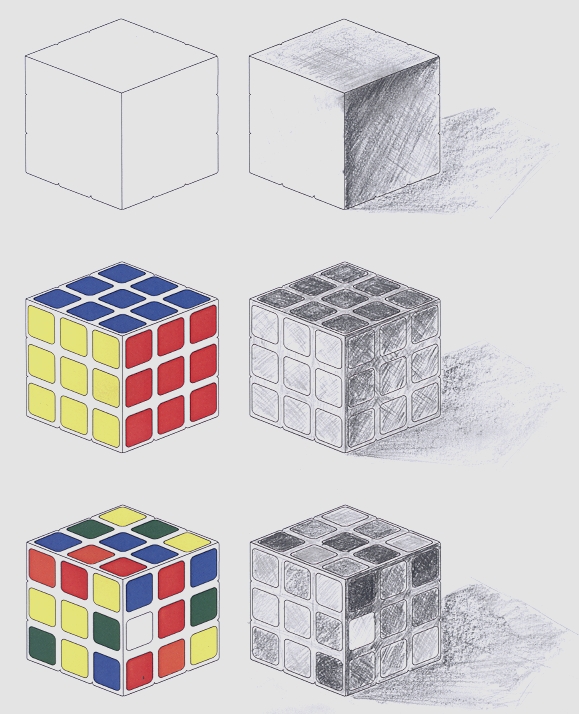Difference between revisions of "AY Honors/Drawing/Answer Key"
(Incorrect skill level) |
|||
| Line 97: | Line 97: | ||
*Drawing on the Right Side of the Brain, Betty Edwards | *Drawing on the Right Side of the Brain, Betty Edwards | ||
<noinclude></translate></noinclude> | <noinclude></translate></noinclude> | ||
| + | [[Category:Adventist Youth Honors Answer Book/Do at home|{{SUBPAGENAME}}]] | ||
Revision as of 21:12, 12 April 2020
Template:Adventist Youth Honor Answer Book/Notes/Drawing and Painting
1. Make a list of Drawing Media.
- Pencils
- Pens
- Crayons
- Color pencils
- Pastels
- Chalk
- Charcoal
- Graphite
- Ink
- Paint
- Color markers
2. What is Chiaroscuro? And what effect does it have on drawing?
Chiaroscuro is the powerful use of shading/light and dark in works of art. Value adds dramatic effects and form to an otherwise dull drawing.
3. Draw a Value Scale with at least 10 different values.
4. What is the best way to begin drawing until you are sure all sizes, placement and proportions are correct?
Draw lightly so if mistakes are made they are easier to erase.
5. Know the difference between eye level, bird’s eye view and worm’s eye view.
6. Show foreground, middle ground and background in a simple landscape.
7. What is a “multi-media” drawing?
A multi-media drawing is one that uses more than one media (see requirement one for a list of media).
8. Explain Linear Perspective and list at least 4 ways to achieve it when drawing a landscape.
Linear Perspective is showing depth or distance in your drawing. Here are some techniques:
| Technique | Effect |
|---|---|
| Placing an object high on the page | Looks far away |
| Placing an object lower on the page | Looks closer |
| Size | Smaller are far away/larger are close |
| Overlapping | objects you don’t see all of are farther away |
| Detail and color | Close objects will have more detail, texture and darker
color than objects in the distance. |
9. Draw a cylindrical object and a rectangular object grouped together a little below the eye, showing proper perspective, light and shade.
10. Understand and describe these types of subject matter:
- a. Portraits
- Person and/or animal
- b. Landscapes
- Of the land, sea, architecture, etc.
- c. Still Life
- Non-living/non-moving
- d. Abstract
- Non-realistic, may or may not be recognizable
11. Draw an animal using simple shapes such as squares, triangles, rectangles.
12. Make a freehand sketch of an animal, showing in values the distribution of color.
13. Make a drawing of some landscape near your home.
Remember, you can’t draw the whole world in your piece, so choose a small section for this landscape.
14. Draw and shade in a still life.
Make it personal and interesting; add personal touches and objects that you are excited about - this will make your artwork more fun and easier for you to finish.
15. Memorize Psalm 33:6, and discuss how it relates to Drawing.
“By the Word of God were the heavens made; and all the host of them by the breath of His mouth.”
References
- Drawing on the Right Side of the Brain, Betty Edwards


